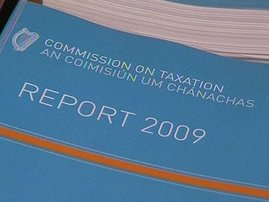Taoiseach’s ‘my way or the highway’ approach to budget cuts
 I never received an answer to my question to the Leader of the Seanad some weeks ago as to when and why the decision was made to move from a policy of securing savings of €4 billion in public spending through a combination of €2.5 billion in spending cuts and €1.5 billion in taxation measures to a position where the entire €4 billion is apparently to be achieved by way of cuts alone. Reports in today’s newspapers say the Taoiseach has put forward another version of his “my way or the highway” approach to the debate on the forthcoming budget with an indication that what he envisages will occur come hell or high water.
I never received an answer to my question to the Leader of the Seanad some weeks ago as to when and why the decision was made to move from a policy of securing savings of €4 billion in public spending through a combination of €2.5 billion in spending cuts and €1.5 billion in taxation measures to a position where the entire €4 billion is apparently to be achieved by way of cuts alone. Reports in today’s newspapers say the Taoiseach has put forward another version of his “my way or the highway” approach to the debate on the forthcoming budget with an indication that what he envisages will occur come hell or high water.
Will the Leader facilitate a debate on the fundamental issues associated with the desirability and advisability of instituting such radical spending cuts? The question is whether our economy will be able to withstand such deep cuts in public services and the associated impact for the entire economy. No other country in the OECD is engaging in these types of radical cuts as a matter of policy in the midst of a severe recession. The conventional wisdom has always been that governments should wait until the economy shows some signs of improvement before engaging in such draconian reductions in public spending. The Government apparently shared this view earlier in the year but it seems there has been a change of mind in the interim. No explanation has been given in this House or elsewhere as to whether such a decision was made and, if so, why or when it was taken. When I put this question to the Leader on a previous occasion he replied that we must wait to see what is done in the budget.
There must be a debate on how increases in taxation can contribute to making up the required saving of €4 billion in public expenditure. Why was the Commission on Taxation tasked with setting out the various options in this regard if its findings were to be jettisoned?
I am not saying that anybody in the Labour Party or elsewhere would feel particularly comfortable standing up and advocating tax increases. Nobody likes to do that, but it is part of the picture and we have to deal with the balance between cuts and taxation measures. It is simply not good enough to spend money and effort on these reports during a serious recession and do nothing. There is a need for serious public debate in places like this House. I second the proposal on the Order of Business that we have a debate here in advance of the budget on what ought to occur.
